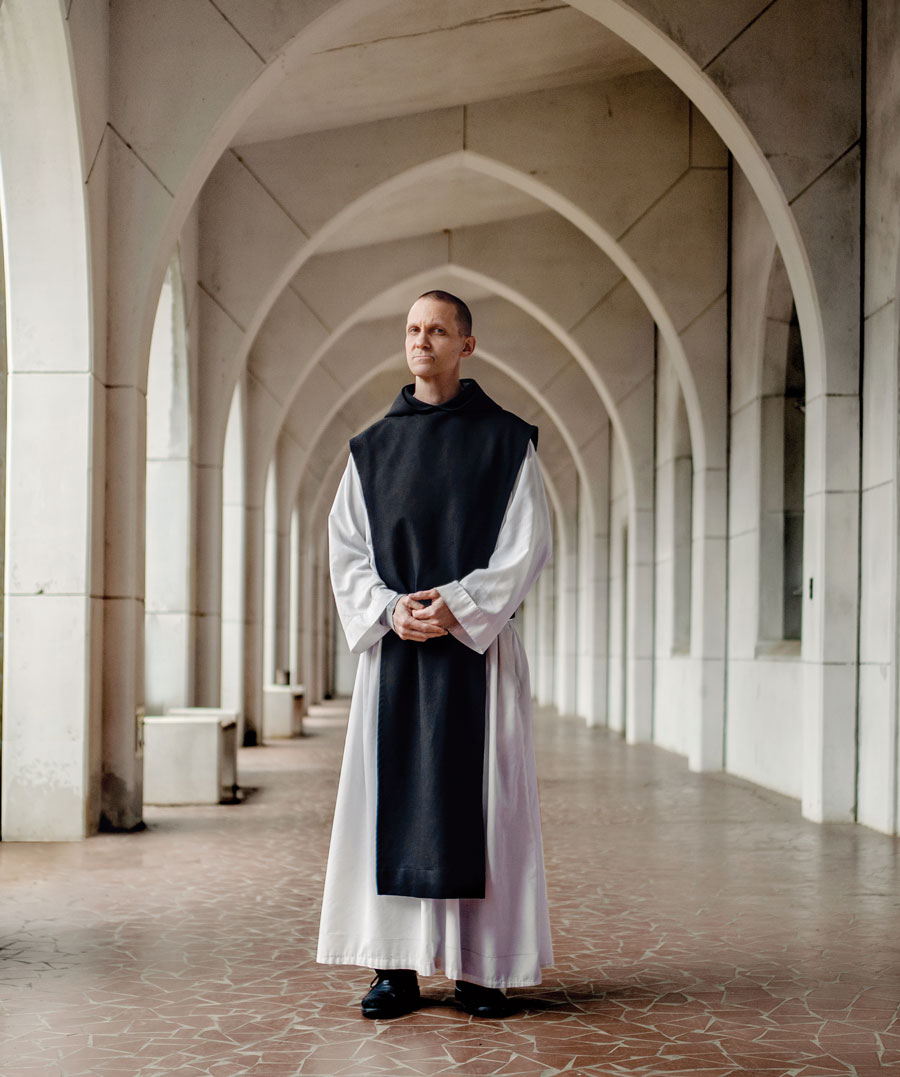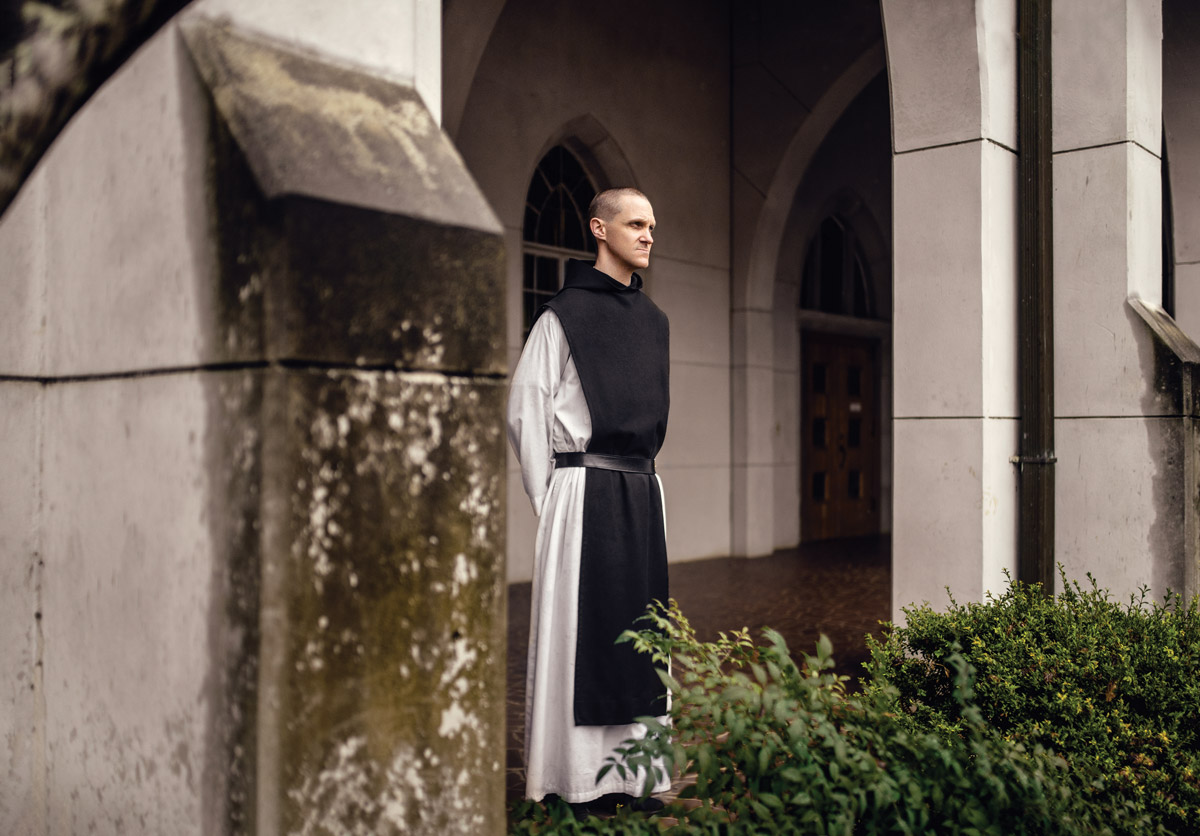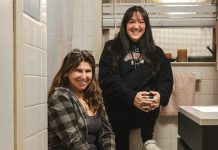
Photograph by Mike Colletta
Every monk has a unique story, and it all begins with the call. My call came at a time when I was a pastry chef in Pittsburgh. I was getting burned out. I was unfulfilled and unsatisfied with the life I was living. I wanted to live a deeper, more meaningful life with purpose. It took several years of discerning this call. You’re never sure what is attracting you to a monastery. Is it really God calling, or is it me trying to escape my reality?
I came to visit for a week, and I lived in the retreat house here and participated in the services with the monks. Then, I went back home and still was not sure. It took me another six months to come back to become an observer, which is the first step—living inside the monastery with the monks.
This period of time was a terrible struggle. I alternately tested this [call to become a monk] against what it was going to require me to leave behind. You’re asked as a monk to give up everything you own, to give up any expectation of your future. I have four brothers, a mother and father. The hardest part was leaving my family. And I was willing to do that. If I was willing to leave what I loved most for something which I believe was greater, then I believe that is an authentic call. That really sustained me, seeing what I was leaving, believing in faith that everything is possible with God, and just to trust.
Jesus said that unless the grain of wheat falls into the earth, it remains alone. It will not bear fruit unless it dies. A part of me had to die, a part of that life had to end, to open up to newer life. And I thought of it as sacrificing love for the greatest love there is. I don’t believe it excludes the love I have for my family. I believe it involves that, and it takes on something greater. I still maintain a great relationship with my family. They visit once a year.

Photograph by Mike Colletta
A day here begins early. The first service is at 4 a.m., what’s called vigils, the first hour of prayer. After vigils, it’s time for personal prayer, or Lectio Divina, which is sacred reading of scripture. And then Mass at 7 o’clock, and after Mass, we begin work for a period of three hours. I work in the bakery with several other brothers. After midday prayer, we share a communal meal.
After the meal, we have personal time until 2:30, when we begin another period of work until 4:30. It’s really the wisdom of the Benedictine way—from work to prayer, prayer to work. It’s not really compartmentalized; it’s all one. From 4:30 to 5:15 is for personal prayer. And then we have vespers, then supper, then evening prayers, called compline.
[As a monk,] we offer ourselves to God for the church and for all people. We make a vow to serve all of God’s people. To serve our community, the larger church, and the world. We pray for the salvation of all people.
If you think you’re going to get away from all your problems, your anxieties, you’re going to find them more acutely here in solitude. That’s part of the spiritual combat—facing our own selves, coming to peace within ourselves, accepting and coming to your conversion. This is definitely not an escape from the world, or from ourselves.
Some monasteries are closing down, because of the decreasing numbers. [Monastery of the Holy Spirit now is home to 26 monks, down from a peak of 100.] We believe that a lot has to do with the way the culture has developed, with so much technology. But we believe that God continues to call people, though all the technology, the phones, can be a distraction. It’s become more difficult for people to take the time to hear God calling.
Every day, I’m reminded why I came here, what my purpose is. And if I’m willing to submit myself to his will, then I’m at peace, and I believe he can accomplish anything, even in someone like me who may have thought before that I had no purpose. But I found it in doing his will. And I find great joy in that.
This article appears in our April 2020 issue.














